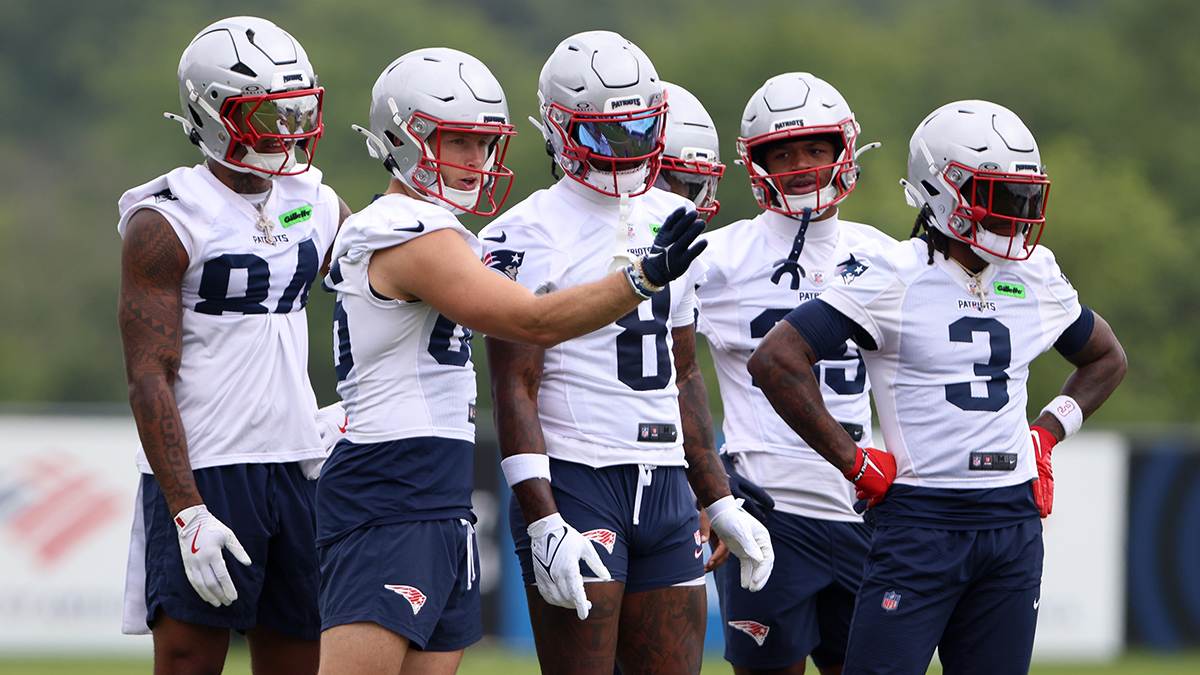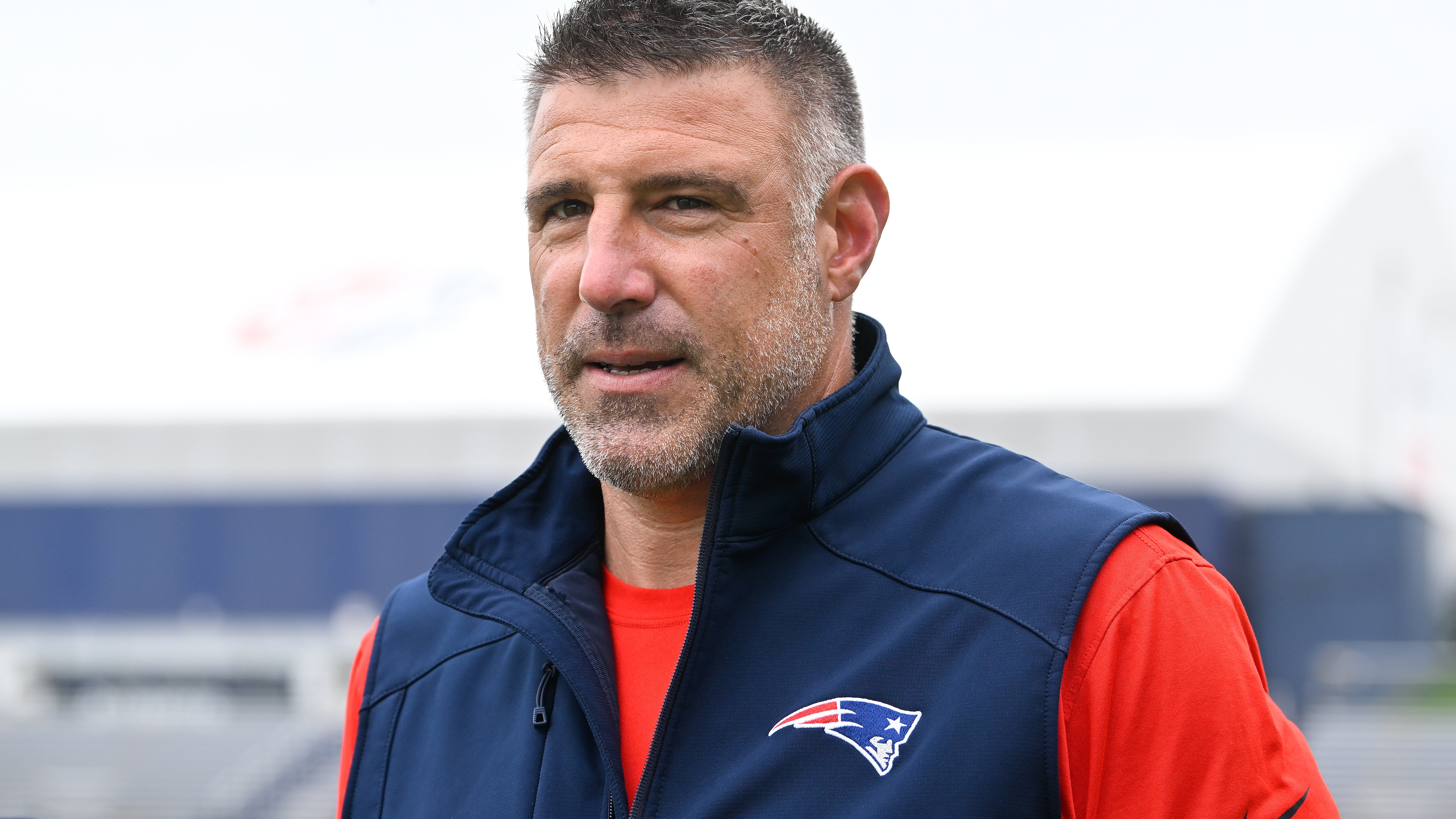Part of the reason the Patriots had issues against the run in Pittsburgh on Sunday was because they were playing the pass.
They played a heavy dose of dime defense throughout the night, with six Patriots defensive backs playing at least 39 snaps. Jonathan Jones was on the field for 26. Even rookie corner Keion Crossen got on the field for five.
But, as Dont'a Hightower explained on "Monday Night Patriots" this week, there were fundamental breakdowns up front that led to the Steelers rattling off 158 yards on 22 carries by their running backs (142 yards on 19 carries by rookie Jaylen Samuels).
- MORE PATRIOTS - How fast can Pats improve their mental toughness?
On a Stevan Ridley 12-yard run from the shadow of the Pittsburgh goal line, Adam Butler was driven from his gap, Malcom Brown had issues getting off his block, and Hightower had followed the fullback into the "A" gap to the right of the center. Ridley hit the opposite "A" gap and found little resistance.
On a 10-yard Samuels run in the first quarter, Kyle Van Noy couldn't decipher where the back was headed and missed a tackle.
On a 15-yard run by Samuels to start the fourth quarter, Deatrich Wise got up the field and out of the play while Butler and Patrick Chung couldn't shake blocks.
New England Patriots
Find the latest New England Patriots news, highlights, analysis and more with NBC Sports Boston.
Over their past three games, the Patriots have allowed 147.3 yards per game on the ground. The issues there, according to Hightower, are more than just scheme-related.
"A lot of guys try to put it off on game-plan, scheming," he said. "But sometimes it just comes down to execution. We've just gotta do a better job of that either way. I think a bigger part of that is guys taking ownership and leadership. Whether that's me and Trey [Flowers] and Malc, [Elandon Roberts], some of those guys, [Van Noy], taking the front-seven for extra reps -- be it before or after practice -- or extra film study. You wouldn't expect [we'd be] having to do things like that, but whatever's necessary and whatever's needed."
Rob Ninkovich suggested on "The Ex-Pats Podcast" that the team simply has to get back to basics when it comes to defending the run. It's fixable, but those fixes take time. And freeing up that time -- if it's not done before or after practice -- may suck up time the Patriots would have otherwise set aside for game-planning.
"It can happen," Ninkovich said, "but the problem is when you have to work on fundamentals of run-stopping defense, you're taking up time in practice with things you should have done a long time ago. You should have all your techniques down."
"You never have enough time to work on the fundamentals," Bill Belichick said on a conference call Tuesday. "You never have as much time as you would like to have to work on the fundamentals during the season at any position – offense, defense, special teams.
"You have to balance the fundamentals, which are important to the scheme and the team execution which are also very important . . . If you decide to change the normal percentages on that and you take something away from one area and put it somewhere else, then you certainly can do that. Sometimes there’s a good reason to do that, one way or the other. But in the end, you’ve taken from one hand and given to the other."
From Ninkovich's perspective, the frustrating part of that for players would be that some of the technique issues they're coping with are things that should've been squared away long ago. Instead of working on high-level calculus in Week 16, there needs to be time devoted to making sure everyone can handle their multiplication tables.
"Say you test into Math 1, basic math," Ninkovich said. "And then you're thrown into Algebra. It doesn't matter how hard you work at it. You haven't gone into the initial steps of how to do steps to finish the problem in the first place. You can have a tutor all day in Algebra but guess what? You don't know the first steps. You're like, 'OK, how do I do this?'
"They're going to be in practice and they're going to do 9-on-7 and half-line and they're going to work on it. But the initial steps, the keys, are things that you already should have done a long time ago."
While Hightower acknowledged his team's deficiencies in the running game, he said he didn't think there needed to be any type of rally-the-troops locker room speech in order to spark a change.
"I don't think there needs to be a big panic button or anything," he said. "I think we kind of already knew what was in stake for us whether we won or lost. We definitely know how we want to play ball, especially after Thanksgiving. Things haven't gone our way, but we definitely have time to turn it around and just the right amount of time to do it. It's all about us coming in on Wednesday and getting those things taken care of."
In the Bills, the Patriots will be preparing to face a team that's averaging 161.3 rushing yards over its past six games. If Belichick's defense can't get things solved in the running game, it could be a long day on Sunday. Not to mention an emotionally draining one.
At its core, football is still a physical game. And to get pushed around, as Ninkovich described, can be deflating.
- TOM E. CURRAN - Was Brady's last pass just a bad throw or something more?
"When you have the ball ran on you it's demoralizing mentally," Ninkovich said. "You look at it and you're like, 'What are we doing? We can't do this. We can't stop this team. We can't stop them.' Nothing's worse than that."
Click here to download the new MyTeams App by NBC Sports! Receive comprehensive coverage of your teams and stream the Celtics easily on your device.




